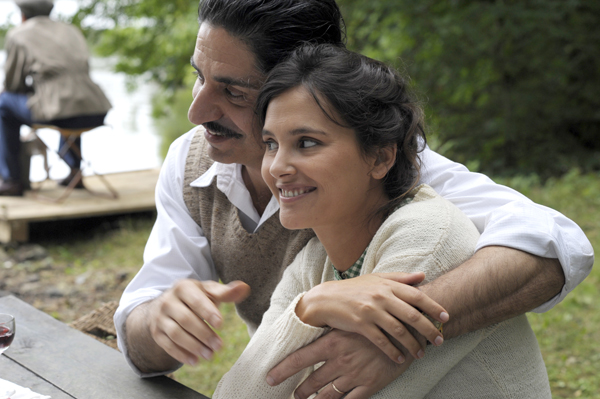|
Reviews of Recent Independent, Foreign, & Documentary Films in Theaters and DVD/Home Video

ARMY OF CRIME There has never been a dearth of French films about the World War II Resistance movement, including classics from directors Jean-Pierre Melville (Army of Shadows), Louis Malle (Lacombe Lucien), and Bertrand Tavernier (Safe Passage). For the new Resistance saga, Army of Crime, director Robert Guédiguian brings to the screen the true story of a group of fighters of various nationalities, led by Armenian poet Missak Manouchian, whom the German-Armenian Guédiguian grew up idolizing as a hero. Army of Crime opens with a haunting voice-over refrain, the names of fallen Resistance fighters—all with decidedly un-Gallic names—who “died for France.” The movie's early scenes leisurely depict these nascent freedom fighters in their everyday lives, like Manouchian (Simon Abkarian) with his beautiful French wife (Virginie Ledoyen) before his arrest (for being a communist) and confinement in a prison camp. Only after he's released does he begin his involvement with the underground, which includes young immigrants from Eastern and Southern Europe. Since they don't take orders from others very well, their daring is both their strength and weakness—we see their recklessness paying off against the Nazis, but it's also their downfall as a unit. Guédiguian's bold, intelligent drama methodically explores the psychology of an array of men and women who throw themselves into hobbling, if not destroying, the Nazi war machine. A pivotal moment comes when Manouchian (who earlier said that he could not kill anyone) takes a grenade and, for the first time, kills several Nazi soldiers. Afterward, he stands over the dead bodies, staring at the carnage he has caused. Although the poet had tried to avoid outright murder, he now realizes that it's the only way to try and prevent the Nazis from winning the war, even if it costs him his own life. Throughout, Guédiguian emphasizes the moral quandary of guerrilla warfare over action or suspense. For Army
of Crime, the director and his collaborators have painstakingly
re-created wartime Paris; that verisimilitude—along with a uniformly
strong cast—adds to the film's stunning sense of place. Guédiguian also
augments original chamber music by French film composer of the moment,
Alexandre Desplat, with well-chosen works by Mozart, Bach, and Vivaldi.
The refreshing complexity of Army of Crime honors the courage of
many ordinary men and women who fought and died for their adopted
country.
Kevin Filipski
|

